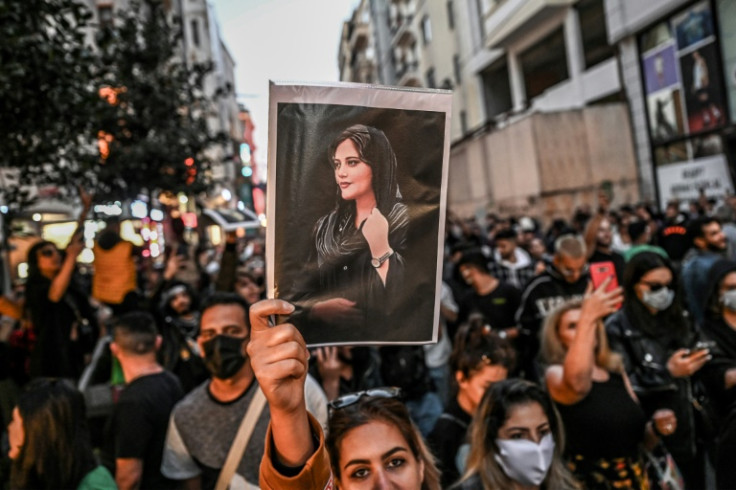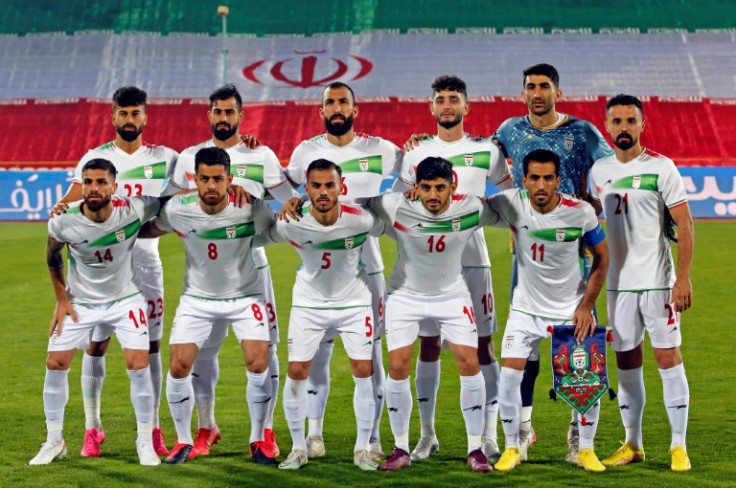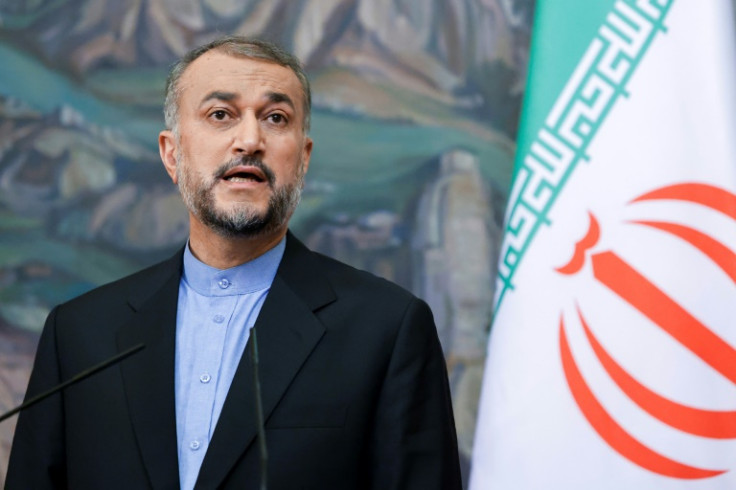Britain says Iran threatened UK-based reporters with death
The journalists were working in the UK for the independent Farsi-language channel, said the broadcaster, which has been covering Iran's anti-regime protests.

Britain on Friday accused Iran of threatening the lives of UK-based journalists, after a crackdown that rights groups say has left more than 300 anti-regime protesters dead in Iran itself.
On Friday demonstrations continued with hundreds of angry men protesting after Friday prayers in Iran's Sistan-Baluchistan province, online videos showed. Their action came six weeks after rights groups say dozens were killed during a crackdown in the region.
"I have summoned the Iranian charge d'affaires today after journalists working in the UK were subject to immediate threats to life from Iran," UK Foreign Secretary James Cleverly tweeted.
On Monday Volant Media, the London-based broadcaster of Iran International TV channel, said two British-Iranian journalists had received "death threats from the Islamic Revolutionary Guard Corps".
The journalists were working in the UK for the independent Farsi-language channel, said the broadcaster, which has been covering Iran's anti-regime protests.

The channel has been declared a "terrorist organisation", Iranian state media on Wednesday quoted Intelligence Minister Esmail Khatib as saying.
Khatib also warned that the UK "will pay" for supporting "insecurity" in Iran.
Security forces shot dead more than 90 people at protests after weekly prayers on September 30 in the Sistan-Baluchistan provincial capital Zahedan, near Pakistan, said Oslo-based group Iran Human Rights (IHR).
The incident came two weeks after demonstrations flared in Iran over the death of Mahsa Amini, following her arrest for allegedly flouting the country's strict dress code for women.
The protests have grown into a broad movement against the theocracy under supreme leader Ayatollah Ali Khamenei, 83.
"Death to Khamenei," chanted men who emerged from mosques in Zahedan after Friday prayers, in a video published by IHR.
The rights group says at least 304 people have been killed at the protests across Iran since Amini's death on September 16.
It says around a third of them were killed in Sistan-Baluchistan, including those who died on September 30 -- a massacre activists have dubbed "Bloody Friday".
The latest demonstrations came a week after a deadly crackdown in Khash, also in Sistan-Baluchistan.
Amnesty International said at least 18 protesters, bystanders and worshippers -- including two children -- were killed when security forces acted against the "largely peaceful protests" there.
Demonstrations resumed Friday in Khash, and dozens of riot police were deployed in Iranshahr, in the same province, online videos verified by AFP showed.
Security forces were seen firing tear gas to disperse protesters in Iranshahr, in footage published by the 1500tasvir monitoring channel.
Iran's Tasnim news agency said a week of appeals by "counter-revolutionaries" to create trouble 40 days after the Zahedan incident had failed.

Worshippers went home from Iran's largest Sunni mosque in Zahedan without incident, except for some anti-government chants, Tasnim said.
In other locations including Khash, Iranshahr and Rask there had been only "small demonstrations", the agency said.
It added that in Iranshahr, demonstrators headed from a Sunni mosque toward a police station at which they threw stones until security forces intervened.
In Rask, residents burned tyres that briefly blocked the road leading to Chabahar port, Tasnim said.
London-based Amnesty called on the international community "to take urgent action to stop further killings", and said the UN Human Rights Council must set up "an independent investigative and accountability mechanism to investigate crimes".
Mass arrests have seen 1,000 people charged so far and activists say many risk the death penalty.
A panel of UN rights experts took that cause up on Friday, urging "Iranian authorities to stop using the death penalty as a tool to squash protests".
Iran's foreign minister on Thursday accused Western countries of "promoting violence and teaching (protesters) to make weapons and Molotov cocktails via social networks and the media".
In a phone call with UN chief Antonio Guterres, Hossein Amir-Abdollahian also said Iran "is the true defender of human rights and has exercised serious restraint regarding the recent riots".
The crackdown has mainly involved riot police, the Revolutionary Guards and their Basij paramilitary force.
But Iran's army ground forces commander, Brigadier General Kioumars Heydari, said his troops were awaiting orders from Khamenei to intervene against the protesters.
Iran's campaign of mass arrests against the protests has snared athletes, celebrities and journalists.
Activists have called on football fans attending the World Cup starting November 20 to chant Amini's name during the 22nd minute at each of Iran's matches -- the time corresponding to her age.
"Help us immortalise #MahsaAmini and our fight against this brutal regime," tweeted New York-based campaigner Masih Alinejad.
© Copyright AFP 2025. All rights reserved.




















